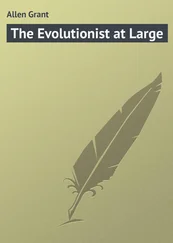Grant Allen - Strange Stories
Здесь есть возможность читать онлайн «Grant Allen - Strange Stories» — ознакомительный отрывок электронной книги совершенно бесплатно, а после прочтения отрывка купить полную версию. В некоторых случаях можно слушать аудио, скачать через торрент в формате fb2 и присутствует краткое содержание. Жанр: foreign_prose, на английском языке. Описание произведения, (предисловие) а так же отзывы посетителей доступны на портале библиотеки ЛибКат.
- Название:Strange Stories
- Автор:
- Жанр:
- Год:неизвестен
- ISBN:нет данных
- Рейтинг книги:3 / 5. Голосов: 1
-
Избранное:Добавить в избранное
- Отзывы:
-
Ваша оценка:
- 60
- 1
- 2
- 3
- 4
- 5
Strange Stories: краткое содержание, описание и аннотация
Предлагаем к чтению аннотацию, описание, краткое содержание или предисловие (зависит от того, что написал сам автор книги «Strange Stories»). Если вы не нашли необходимую информацию о книге — напишите в комментариях, мы постараемся отыскать её.
Strange Stories — читать онлайн ознакомительный отрывок
Ниже представлен текст книги, разбитый по страницам. Система сохранения места последней прочитанной страницы, позволяет с удобством читать онлайн бесплатно книгу «Strange Stories», без необходимости каждый раз заново искать на чём Вы остановились. Поставьте закладку, и сможете в любой момент перейти на страницу, на которой закончили чтение.
Интервал:
Закладка:
Slowly, as time went on, however, Ethel began to notice a strange shade of change coming over John's ideas and remarks about the negroes. At first he had been shocked and distressed at their heathendom and savagery, but the more he saw of it the more he seemed to find it natural enough in their position, and even in a sort of way to sympathize with it or apologize for it. One morning, a month or two later, he spoke to her voluntarily of his father. He had never done so in England. "I can remember," he said, "he was a chief, a great chief. He had many wives, and my mother was one. He was beaten in War by Kola, and I was taken prisoner. But he had a fine palace at Kwantah, and many fan-bearers." Ethel observed with a faint terror that he seemed to speak with pride and complacency of his father's chieftaincy. She shuddered again and wondered. Was the West African instinct getting the upper hand in him over the Christian gentleman?
When the dries were over, and the koko-harvest gathered, the negroes held a grand feast. John had preached in the open air to some of the market people in the morning, and in the evening he was sitting in the hut with Ethel, waiting till the catechist and his wife should come in to prayers, for they carried out their accustomed ceremony decorously, even there, every night and morning. Suddenly they heard the din of savage music out of doors, and the noise of a great crowd laughing and shouting down the street. John listened, and listened with deepening attention. "Don't you hear it, Ethie?" he cried. "It's the tom-toms. I know what it means. It's the harvest battle-feast!"
"How hideous!" said Ethel, shrinking back.
"Don't be afraid, dearest," John said, smiling at her. "It means no harm. It's only the people amusing themselves." And he began to keep time to the tom-toms rapidly with the palms of his hands.
The din drew nearer, and John grew more evidently excited at every step. "Don't you hear, Ethie?" he said again. "It's the Salonga. What inspiriting music! It's like a drum and fife band; it's like the bagpipes; it's like a military march. By Jove, it compels one to dance!" And he got up as he spoke, in English clerical dress (for he wore clerical dress even at Butabué), and began capering in a sort of hornpipe round the tiny room.
"Oh, John, don't," cried Ethel. "Suppose the catechist were to come in!"
But John's blood was up. "Look here," he said excitedly, "it goes like this. Here you hold your matchlock out; here you fire; here you charge with cutlasses; here you hack them down before you; here you hold up your enemy's head in your hands, and here you kick it off among the women. Oh, it's grand!" There was a terrible light in his black eyes as he spoke, and a terrible trembling in his clenched black hands.
"John," cried Ethel, in an agony of horror, "it isn't Christian, it isn't human, it isn't worthy of you. I can never, never love you if you do such a thing again."
In a moment John's face changed and his hand fell as if she had stabbed him. "Ethie," he said in a low voice, creeping back to her like a whipped spaniel, "Ethie, my darling, my own soul, my beloved; what have I done! Oh, heavens, I will never listen to the accursed thing again. Oh, Ethie, for heaven's sake, for mercy's sake, forgive me!"
Ethel laid her hand, trembling, on his head. John sank upon his knees before her, and bowed himself down with his head between his arms, like one staggered and penitent. Ethel lifted him gently, and at that moment the catechist and his wife came in. John stood up firmly, took down his Bible and Prayer-book, and read through evening prayer at once in his usual impressive tone. In one moment he had changed back again from the Fantee savage to the decorous Oxford clergyman.
It was only a week later that Ethel, hunting about in the little storeroom, happened to notice a stout wooden box carefully covered up. She opened the lid with some difficulty, for it was fastened down with a native lock, and to her horror she found inside it a surreptitious keg of raw negro rum. She took the keg out, put it conspicuously in the midst of the storeroom, and said nothing. That night she heard John in the jungle behind the yard, and looking out, she saw dimly that he was hacking the keg to pieces vehemently with an axe. After that he was even kinder and tenderer to her than usual for the next week, but Ethel vaguely remembered that once or twice before, he had seemed a little odd in his manner, and that it was on those days that she had seen gleams of the savage nature peeping through. Perhaps, she thought, with a shiver, his civilization was only a veneer, and a glass of raw rum or so was enough to wash it off.
Twelve months after their first arrival, Ethel came home very feverish one evening from her girls' school, and found John gone from the hut. Searching about in the room for the quinine bottle, she came once more upon a rum-keg, and this time it was empty. A nameless terror drove her into the little bedroom. There, on the bed, torn into a hundred shreds, lay John Creedy's black coat and European clothing. The room whirled around her, and though she had never heard of such a thing before, the terrible truth flashed across her bewildered mind like a hideous dream. She went out, alone, at night, as she had never done before since she came to Africa, into the broad lane between the huts which constituted the chief street of Butabué. So far away from home, so utterly solitary among all those black faces, so sick at heart with that burning and devouring horror! She reeled and staggered down the street, not knowing how or where she went, till at the end, beneath the two tall date-palms, she saw lights flashing and heard the noise of shouts and laughter. A group of natives, men and women together, were dancing and howling round a dancing and howling negro. The central figure was dressed in the native fashion, with arms and legs bare, and he was shouting a loud song at the top of his voice in the Fantee language, while he shook a tom-tom. There was a huskiness as of drink in his throat, and his steps were unsteady and doubtful. Great heavens! could that reeling, shrieking black savage be John Creedy?
Yes, instinct had gained the day over civilization; the savage in John Creedy had broken out; he had torn up his English clothes and, in West African parlance, "had gone Fantee." Ethel gazed at him, white with horror – stood still and gazed, and never cried nor fainted, nor said a word. The crowd of negroes divided to right and left, and John Creedy saw his wife standing there like a marble figure. With one awful cry he came to himself again, and rushed to her side. She did not repel him, as he expected; she did not speak; she was mute and cold like a corpse, not like a living woman. He took her up in his strong arms, laid her head on his shoulder, and carried her home through the long line of thatched huts, erect and steady as when he first walked up the aisle of Walton Magna church. Then he laid her down gently on the bed, and called the wife of the catechist. "She has the fever," he said in Fantee. "Sit by her."
The catechist's wife looked at her, and said, "Yes; the yellow fever."
And so she had. Even before she saw John the fever had been upon her, and that awful revelation had brought it out suddenly in full force. She lay unconscious upon the bed, her eyes open, staring ghastlily, but not a trace of colour in her cheek nor a sign of life upon her face.
John Creedy wrote a few words on a piece of paper, which he folded in his hand, gave a few directions in Fantee to the woman at the bedside, and then hurried out like one on fire into the darkness outside.
III
It was thirty miles through the jungle, by a native trackway, to the nearest mission station at Effuenta. There were two Methodist missionaries stationed there, John Creedy knew, for he had gone round by boat more than once to see them. When he first came to Africa he could no more have found his way across the neck of the river fork by that tangled jungle track than he could have flown bodily over the top of the cocoa palms; but now, half naked, barefooted, and inspired with an overpowering emotion, he threaded his path through the darkness among the creepers and lianas of the forest in true African fashion. Stooping here, creeping on all fours there, running in the open at full speed anon, he never once stopped to draw breath till he had covered the whole thirty miles, and knocked in the early dawn at the door of the mission hut at Effuenta.
Читать дальшеИнтервал:
Закладка:
Похожие книги на «Strange Stories»
Представляем Вашему вниманию похожие книги на «Strange Stories» списком для выбора. Мы отобрали схожую по названию и смыслу литературу в надежде предоставить читателям больше вариантов отыскать новые, интересные, ещё непрочитанные произведения.
Обсуждение, отзывы о книге «Strange Stories» и просто собственные мнения читателей. Оставьте ваши комментарии, напишите, что Вы думаете о произведении, его смысле или главных героях. Укажите что конкретно понравилось, а что нет, и почему Вы так считаете.












